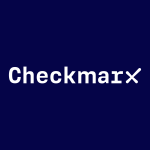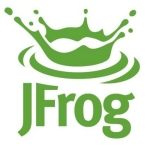What is our primary use case?
I'm a product owner. So, I'm not really using the product myself on a day-to-day basis, but I've been managing teams and companies using GitLab for four to five years. Besides that, I've been involved in two or three tool selection experiences where GitLab was one of the candidates, and because of that, I pretty thoroughly investigated GitLab.
What is most valuable?
It's a great toolbox where the CI/CD pipeline is the fundamental component, but there are so many other features that you can pull from, which makes it a very powerful tool. My current client is using AWS, and they can, of course, use AWS CodePipeline, but GitLab is much more mature than that, and it also gives you the freedom to decide to go to another platform or have a multi-cloud strategy and things like that. That freedom for me is also very valuable.
What needs improvement?
It's more related to the supporting layer of features, such as issue management and issue tracking. We tend to always use, for example, Jira next to it. That doesn't mean that GitLab should build something similar to Jira because that will always have its place, but they could grow a bit in those kinds of supporting features. I see some, for example, covering ITSM on a DevOps team level, and that's one of the things that I and my current client would find really helpful. It's understandably not going to be their main focus and their core, and whenever you are with a company that needs a bit more advanced features on that specific topic, you're probably still going to integrate with another tool like Jira Service Management, for example. However, some basic features on things like that could be really helpful.
In terms of additional features, nothing comes to mind. One of the potential pitfalls is to keep adding new features and functionalities. They can just improve some of the existing features to make it high-end, top-quality. I don't have any substantial experience with agile planning. I don't know the industries GitLab is in, and I don't know why they make decisions like this, but as a customer, I would rather see them invest in improving the basic agile planning functionalities rather than adding, for example, portfolio planning features. That's because if I'm going to do portfolio planning, I probably will also need a lot of business users. I'm not sure if I want them in GitLab, I'd rather have them in Jira collaborating with me on portfolio planning. That's way better fitted for that type of work.
What do I think about the stability of the solution?
I don't have a strong opinion on that or much experience with that because, in the two companies, we used a self-hosted instance of GitLab where the user base was pretty small with 40 or 50 users. My current client has 300 users, which still is not huge, and we're using a managed hosted server. Its performance is fine. It is not stunning, but fine. I just don't have an insight on how much effort that costs from the hosting party.
What do I think about the scalability of the solution?
It is a scalable product. For my current client, we're looking at doing exactly that. We have been using the basic features, and we're looking into making more use of the security features and static testing unit. We're in the middle of doing that. I wouldn't be doing that if I wasn't convinced about its scalability.
How are customer service and support?
My current experience is with the hosted instance of GitLab. So, there's a company in between.
Before that, I've been having contact with them in the tool selection phase as well as the implementation phase, and I was very happy and impressed with their knowledge and responsiveness. I would be curious to see how it is if you're three years into using the tool and run into an issue. That's because in the phase of being one of the tools you want to consider for CI/CD, obviously, they're very willing and eager to get you on board, and thus are on top of your support request, but if you're a running customer, with three or four years in, I'm curious how their responsiveness and expertise would be. I don't have that experience.
Based on my experience, I would rate them a four out of five. They were very good. If I have a question or we aren't getting support quite quickly enough, I would still feel free to call the account manager I was in contact with back then.
How would you rate customer service and support?
How was the initial setup?
I haven't done it myself yet, but I have been working with the teams who have, and I would rate it a four out of five in terms of the ease of setup. It's pretty straightforward. That's also one of the strengths of GitLab. For example, for my current client, setting up a default GitLab runner that suits most of the teams was the biggest challenge, which is a compliment to the setup procedure of GitLab because that was easy enough.
What's my experience with pricing, setup cost, and licensing?
It's always difficult to compare prices fairly because features between competitors always differ pretty strongly.
There are three tiers. The Premium version of GitLab is a no-brainer. If I look at the difference between Free and Premium, I would always go for Premium. For me, that's a no-brainer. In terms of competitiveness, they're doing a great job with Premium. The step between Premium and Ultimate might need a business case in most companies. You get a lot more features, but there is also a pretty steep difference in price.
I'm not sure if they have some kind of discount. I've been negotiating with them on prices before, and I believe they weren't too happy to give discounts, but list prices are $19 per user, per month for Premium and $99 per user, per month for Ultimate.
So, the difference between Premium and Ultimate is a bit bigger, and in most companies, you need to build some type of business case. If I look at the security testing features that you get, such as compliance and value streaming portfolio mapping, I'm not sure if a lot of companies are directly looking for that in GitLab. I myself would rather, for example, use Jira for that than GitLab, but still, security and compliance for me would be the biggest benefits of going to Ultimate. My current client is in the financial industry, and business cases are built up rather easily. So, in terms of competitiveness of features, they're doing pretty well.
Which other solutions did I evaluate?
In the last tool selection I was involved in, the main competitors were GitHub and Atlassian. CircleCI was another one, but it wasn't a strong competitor. We were not sure about CircleCI.
The difference between GitLab and GitHub is minimal. They're pretty similar. The difference between GitHub and Atlassian is a bit bigger because Atlassian has several applications. If you were to set up a CI/CD pipeline, you would need Jira, BitBucket, and then bigger pipelines, or Bamboo as a build too. You would also need a couple of tools for user management. You need to set up a tool stack. Atlassian's flexibility is perfect, but if you were to score that on ease of setup, that's probably going to score worse than GitHub. That's a clear difference for me between Atlassian tooling and GitLab.
For me, CircleCI, Jenkins, CloudBees, Concourse, and Travis are doing the same in a way. There's some overlap, but the target audience is completely different. As a big enterprise, you wouldn't be looking at a tool like that very soon. Those are tools that would fit in a pipeline for a smaller company that really values flexibility and a customizable developer experience. In an enterprise environment, you just want one tool that's easy to set up and easy to manage, and GitLab and GitHub are perfect for that.
What other advice do I have?
Overall, I would rate it an eight out of ten. I am very satisfied with it.
Disclosure: My company does not have a business relationship with this vendor other than being a customer.





















